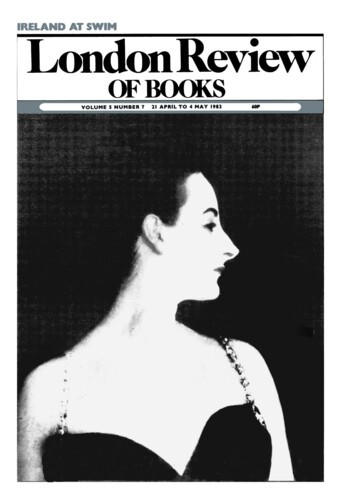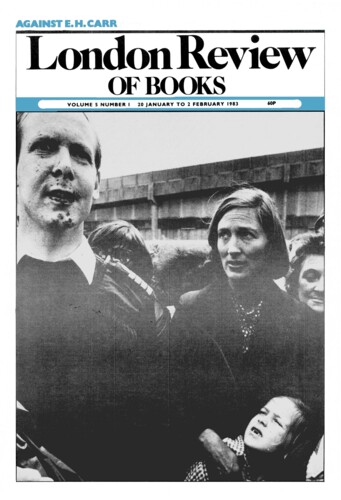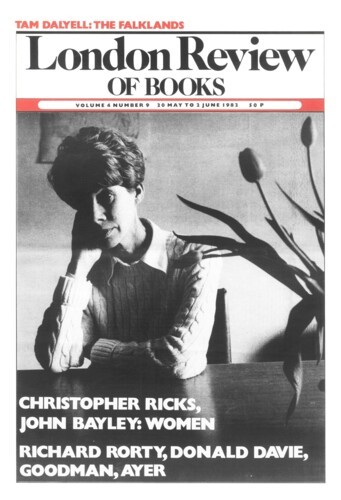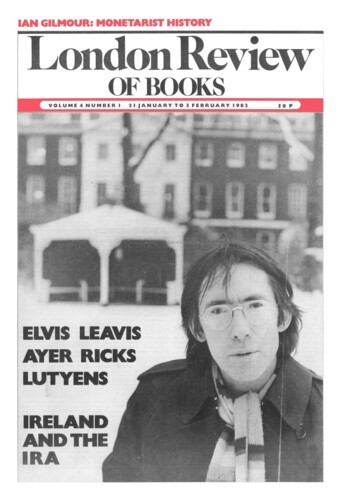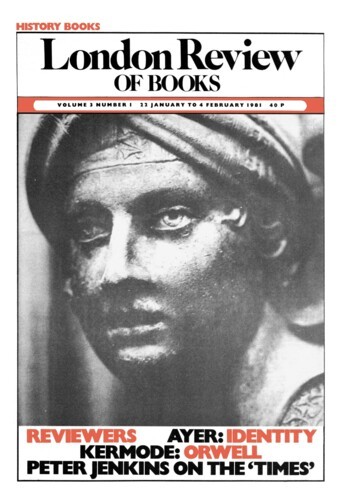Rescuing the bishops
Blair Worden, 21 April 1983
The publication of Patrick Collinson’s The Religion of Protestants is a stirring event in the rediscovery of Early Modern England. Unmistakably the work of a historian who has reflected on his subject for the better part of a working lifetime, the book consists of six wide-ranging essays which were originally delivered as the Ford Lectures when Professor Collinson visited Oxford in 1979, and which have now been revised, expanded and tightened – although the speculative tone of the lecture-hall has been appropriately retained. Many other scholars have recently explored the development of the Church of England over the two long reigns of Elizabeth I and James I, and one of Collinson’s achievements, executed with singular modesty and generosity, has been to draw their conclusions together and to set them in perspective. But the findings which count for most are the author’s own. To the non-specialist reader, two warnings should be offered. The opening chapter, about Church and State, may seem the hardest: begin with Chapter Two. Secondly, do not expect tidy answers. Collinson’s thesis, although lucidly and vigorously presented, is honourably complex and tentative. This is the modern manner, history with its head down: patient, unpretentious, suspicious of the swift and brash generalisations that stole the headlines a decade and more ago.–
